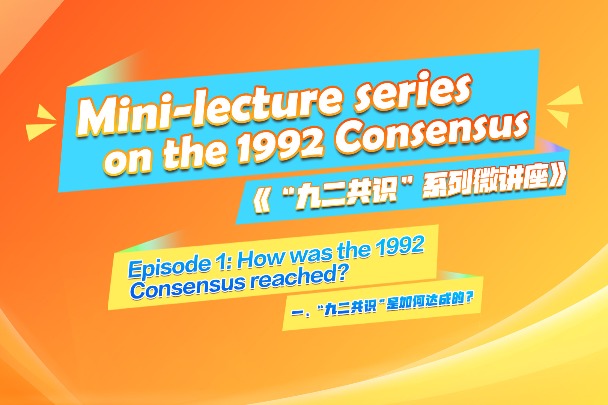Experts at cross-Strait event cite similarities between Taiwan, mainland youth


Younger people from both sides of the Taiwan Strait have become increasingly similar through cross-Strait exchanges, and the phenomenon demonstrates the practical effects of cross-Strait integration, experts from Taiwan and the Chinese mainland said.
They made the remarks at the eighth "Cross-Strait Scholars Face-to-Face" event held in Beijing on Wednesday, with an aim to promote the opportunities that are available for young people who participate in cross-Strait integrated development.
Li Zhenguang, a professor of Taiwan studies at Beijing Union University, said that mainland residents enjoy cultural products from Taiwan, such as songs, movies and TV dramas that come from the island.
Likewise, many Taiwan residents use products from the mainland, showing the tangible effects of integration, he said.
Liu Xing-ren, an associate professor from Chinese Culture University in Taipei, capital of Taiwan, said that on social media platforms, one can see many videos of Taiwan youths imitating recent popular dance moves beloved by their mainland counterparts.
He also mentioned that many of his students in Taiwan watch mainland TV dramas and enjoy playing online games with mainland netizens, and that the connections and emotional bonds between the two sides are constantly growing.
Li said that a guideline released in September calling on Fujian province to build a demonstration area focused on integrated development across the Taiwan Strait has facilitated the work of Taiwan teachers, doctors and other professionals in Fujian, expanding job opportunities and development prospects for Taiwan youth.
He said that as such integration deepens, young people from both sides will have more chances to work together and achieve win-win cooperation.




